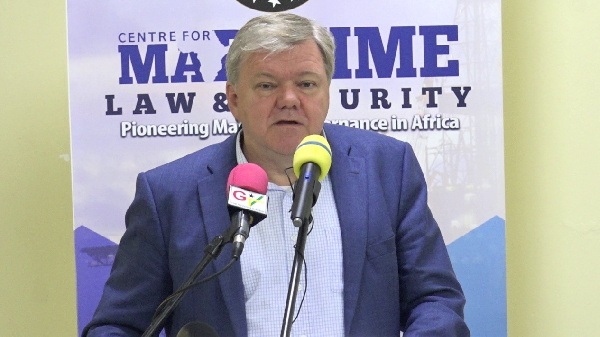In the last five years, Denmark has topped the list of least corrupt nations in the world in a Corruption Perception Index, CPI, released by Transparency International.
The 2022 Report ranked Denmark number one followed by Finland, New Zealand and Norway.
The CPI ranks 180 countries and territories around the world by their perceived levels of public sector corruption, scoring on a scale of zero (highly corrupt) to 100 (very clean).
How has Denmark remained consistent?
Gbcghanaonline.com Editor-in-Chief, Rebecca Ekpe sought some answers in an interview with the Danish Ambassador to Ghana, Tom Norring.
What is clear is that living a corrupt-free life is cultural. It must be innate; it should be part of the society and must be consistent with the lifestyle of the people, that is who we are, being ranked the least corrupt in the world means that is who are, Mr. Norring explained.
Trust is the bottom line he says, trust for and of the institutions and making them work is key.
“So that in itself is very, very important because it is not just a fluke, it is something that really reflects how we are as a society… it reflects the understanding between people, it reflects the institutions that so I will say, it comes out of one. Very, very important word that is Trust” Ambassador Norring posited.
Respect for Rule of Law & Press Freedom:
He said besides trust in the institutions, there is rule of law, and freedom of the press and access to information are non-negotiable.
“We have high trust in our companies. In addition, between our companies, we have a high trust in each other that leads to a country of no corruption. Of course, all this again derives from having a society based on democracy, human rights, and respect for human lives’’.
“Respect, press Freedom, these things are important. I think particularly when we talk about corruption and anti-corruption, having strong and independent media is critical. Which means access to information… the media will be able to go to any institution and ask for access to information. It gives them the right to scrutinize what is going on’’.
Legislating anti-corruption?
Ironically, Denmark does not have a collection of anti-corruption legislation instead emphasis is on self-regulation, according to Mr. Norring.
“So it is quite interesting that Denmark does not really have anti-corruption legislation. We have signed up to International Conventions, United Nations Convention on corruption, we have signed out to a number of EU conventions or wars within the EU. There is the European Council regular convention on corruption. We signed up to these”.
Having the political will to nib corruption in the bud is showing commitment to the course.
Enforcing the Laws, Maintaining the Institutions
Mr. Norring explained how the systems and institutions work in tandem. He said because of digitization, most of the information within the public sector is in real-time aligning with other sectors.
“You have to have a system where everybody understands… institutions that are well functioning: your political system, your Parliament, your government, ministries”.
“All the institutions that are part of the well-functioning Society, including the Military, including the Police, the tax authorities, the customs societies, the Housing Authority is whatever you have, you have to be sure that they all are at a very, very high level,” he noted.
Tax Discipline
It is obvious that discipline stands tall in the Denmark scheme of things. However, one thing that has contributed to a non-corrupt system is a sustainable tax system.
It is worthy of note that the people of Denmark contribute 50% of their income in taxes to support the State.
According to Ambassador Norring, “The people will only pay their taxes willingly if they see results at the other end. So already at that point, trust becomes extremely important. Because basically, if we have, Denmark is probably the country in the world that has the highest Personal income tax, we pay more than fifty per cent of our incoming tax,” he posited.
Source: gbcghanaonline.com




